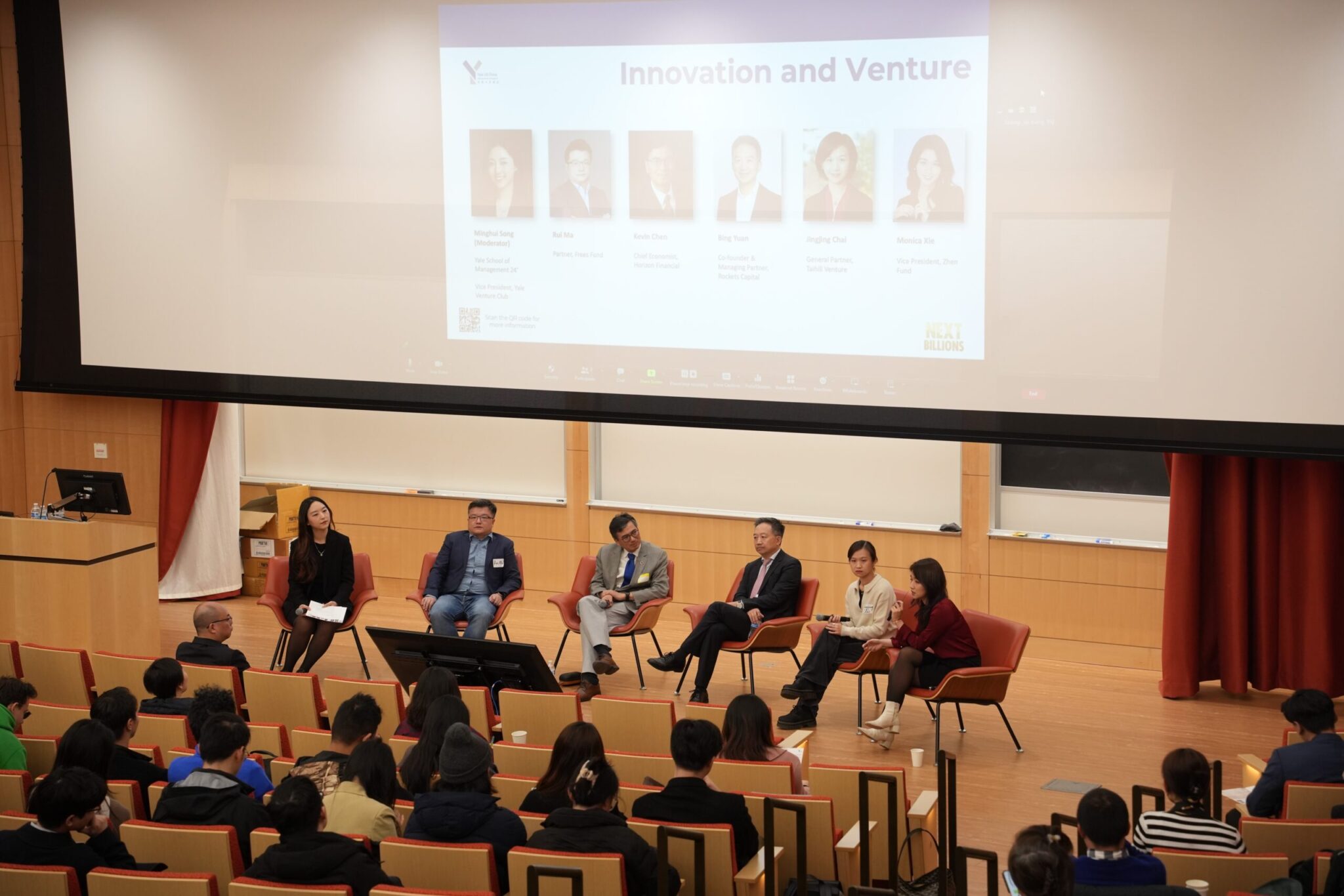Yale U.S.-China Distinguished Colloquium celebrates 45 years of formalized U.S.-China relations
The 2024 colloquium featured over 40 speakers and panelists in the fields of healthcare, finance, technology and more.

Courtesy of Teresa Dai SOM ’24
On Saturday, 500 people attended the 2024 Yale U.S.-China Distinguished Colloquium at the Yale Science Building. Organized under the theme “forge a shared future,” the event brought together scholars, diplomats and industry leaders from China and the U.S. to promote cross-border dialogue and collaboration.
“I hope that the Yale-China 2024 Distinguished Colloquium will continue to spark conversations, foster long-term relationships and strengthen initiatives that contribute to the betterment of China-US relations and the achievement of our common goals,” Siddharth Chatterjee, UN Resident Coordinator in China, said in his opening remarks.
Other opening address speakers included University Provost Scott Strobel and Molecular, Cellular, and Developmental Biology professor Anna Marie Pyle. Keynote speeches were given by Yigong Shi, the founding president of Westlake University, and Natalee Pei, the head of Asia research at Bridgewater Associates.
The speaker outreach effort was coordinated by colloquium co-chairs Teresa Dai SOM ’24, MBA/MPH joint-degree candidate Lucas Lu and third-year biomedical engineering doctoral candidate Rigel Xiang. According to Xiang, the outreach was a combination of colloquium organizers’ existing connections, goodwill from administrators at the co-chairs’ respective schools and outreach within organizers’ professional circles.
“As a Ph.D. candidate, I feel more comfortable connecting with some professors,” Xiang said. “Teresa and Lucas, the other two co-chairs, are from the School of Management, so it is much easier for them to connect to some distinguished alumni in business and similar industries.”
The event was co-hosted by the Association of Chinese Students and Scholars at Yale, the Greater China Club at the School of Management, the Yale Club of Beijing and the Yale Venture Club. The organizing and volunteer teams comprised over 100 people, including students, postdoctoral fellows and visiting researchers at the Yale School of Management, the Graduate School of Arts and Sciences and Yale College.
The colloquium featured over 40 speakers and panelists across seven panel discussions on venture capital, business, healthcare, international affairs, AI ethics, education and cinema.
According to Dai, the selection of panel topics was meant to be more reflective of Yale’s “broader,” liberal arts-oriented culture, in contrast with the predominantly business-oriented panels of last year’s colloquium.
Qin Yan, professor of pathology at the School of Medicine and founding president of the Asian Faculty Association at Yale, moderated the panel on healthcare. Yan emphasized the importance of comparing different approaches to healthcare innovations between the U.S. and China.
“Innovations in healthcare such as AI are implemented in different ways in the U.S. and China,” Yan wrote in an email to the News. “There are many challenges to implement these properly, and this requires improved foundational infrastructures. The U.S. and China should learn from each other so that we can win every war against various diseases more quickly in the future.”
Leslie Stone, vice president and director of Education Programs at the Yale-China Association, expressed appreciation for the inclusion of an education panel at the colloquium.
“Cross cultural educational exchange is always valuable and so important, especially now,” Stone wrote. “It is terrific that the education session was included in this year’s colloquium for the first time.”
The panel also included panelists from the Peer Experience Exchange Rostrum, the Zigen Fund and Stars Youth Development Center. Yale-China, which “emphasizes bilateral exchange” through its education programs, has benefitted from advice from PEER and Zigen associates in the past, per Stone.
In April 2023, a group of Chinese and Hong Kong students at Yale criticized University President Peter Salovey for his participation in the colloquium, citing the alleged “human rights violations” of Ping Huang, a Chinese diplomat involved in the event. This year, organizers of the colloquium stated that they did not receive any similar criticisms.
“It was a very smooth process this year,” Dai said. “From our perspective, we don’t want to take a side. We really want the two countries to continue their collaboration, because we think it’s not only good for the two nations but also good for the world.”
Colloquium organizers did not broadcast or record the colloquium in order to create a “comparatively private space” where panelists were free to share their thoughts, per Xiang.
Xiang stated that, beyond the academic and industry expertise discussed in the panels, the colloquium served as a site of “reunion” for Yale alumni as well as offered a social forum for Chinese students and “foreigners who are interested in Chinese culture” to connect.
“Whenever we do something together, we find ourselves building a stronger community,” Xiang said. “As minorities, Chinese students are not always treated well, so we want to show that we are strong, and we can host these kinds of conferences now and in the future.”
The Yale U.S.-China Distinguished Colloquium was started as the Yale U.S.-China Forum in 2011.







